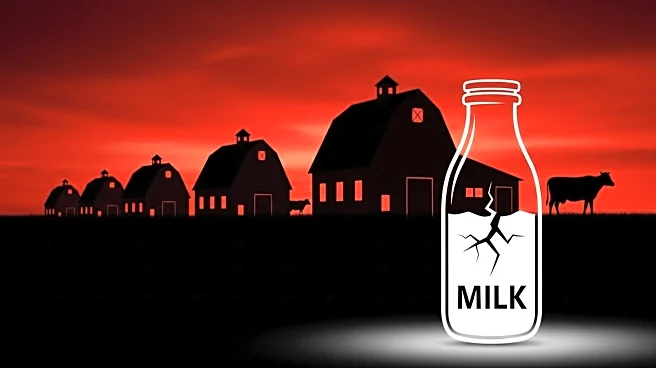What's Happening?
Foot-and-mouth disease (FMD) is severely impacting dairy farms in KwaZulu-Natal, South Africa, posing a significant threat to the national milk supply. The disease has been confirmed on four dairy farms outside the designated FMD management area, leading to localized quarantines. KwaZulu-Natal's dairy farms produce about 30% of South Africa's unprocessed milk, and the spread of FMD could lead to a national shortage. The Milk Producers’ Organisation (MPO) warns that if 18.4% of the province's milk production is halted, South Africa will face a shortfall, necessitating imports at higher costs. The disease causes painful mastitis in dairy cows, leading to increased financial burdens on affected farms, including veterinary costs and reduced milk production.
Why It's Important?
The outbreak of FMD in KwaZulu-Natal's dairy farms could have severe economic repercussions. A reduction in milk production would not only affect local farmers but also the broader South African economy, as the country would need to import milk, leading to increased prices and currency outflow. The profitability of affected farms, jobs, and rural economies are at risk. The situation underscores the need for a specific FMD management protocol for the dairy industry to mitigate these impacts. The psychological toll on farmers and their staff, who witness the suffering of their livestock, adds another layer of complexity to the crisis.
What's Next?
The MPO and other stakeholders are urging the South African government to develop a targeted FMD response for the dairy industry. This includes faster testing and vaccination processes to reduce the spread of the disease. Dairy farms are increasing their reliance on external financing to cope with the crisis, but long-term solutions are needed to ensure the sustainability of the industry. The government and private sector must collaborate to implement biosecurity measures and support affected farmers.








